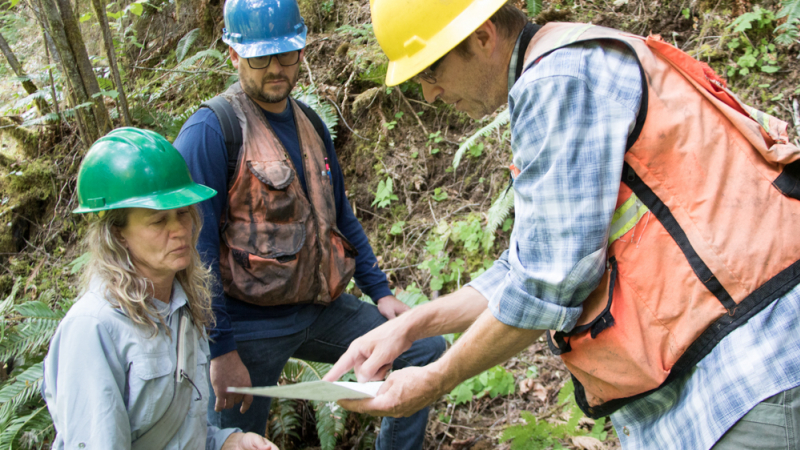
The Authentic Research Experience for Teachers at NSF’s Long Term Ecological Research sites project engages high-school teachers in conducting field and laboratory research focused on the impact of emerging environmental stressors such as floods, droughts, and heat waves, on local biodiversity across diverse ecosystems. The three included LTER sites span diverse critical habitat types on Earth including the Arctic (Arctic LTER), temperate montane forests (Andrews Forest LTER), and marine coastal ecosystems (Santa Barbara Coastal LTER).
Pairs of teachers will be recruited from schools with large populations of students from marginalized groups in science, technology, engineering, and math (STEM) and stationed at each of the three LTER research locations. Teachers will work with faculty and graduate students to conduct research at one of the three LTER sites, and then will compare their experiences with colleagues stationed at other LTER sites through a data workshop at the LTER Network Office in Santa Barbara as well as virtual meetings. This cohort approach will allow teachers to support and learn from one another. Teachers will engage their students in authentic science learning activities and develop an online data product which can be used across K-12 and undergraduate classrooms. (See Data Nuggets, free classroom activities, co-designed by scientists and teachers, designed to bring contemporary research and authentic data into the classroom)
The goals of the project are to train teachers in the techniques involved in global change ecology and how scientists study and describe the impacts of climate change on biodiversity, and to explore ways for teachers to share this experience and these data with their students. The project is a collaboration between scientists and teachers, with both science and education enriched in the exchange of ideas and practice.
